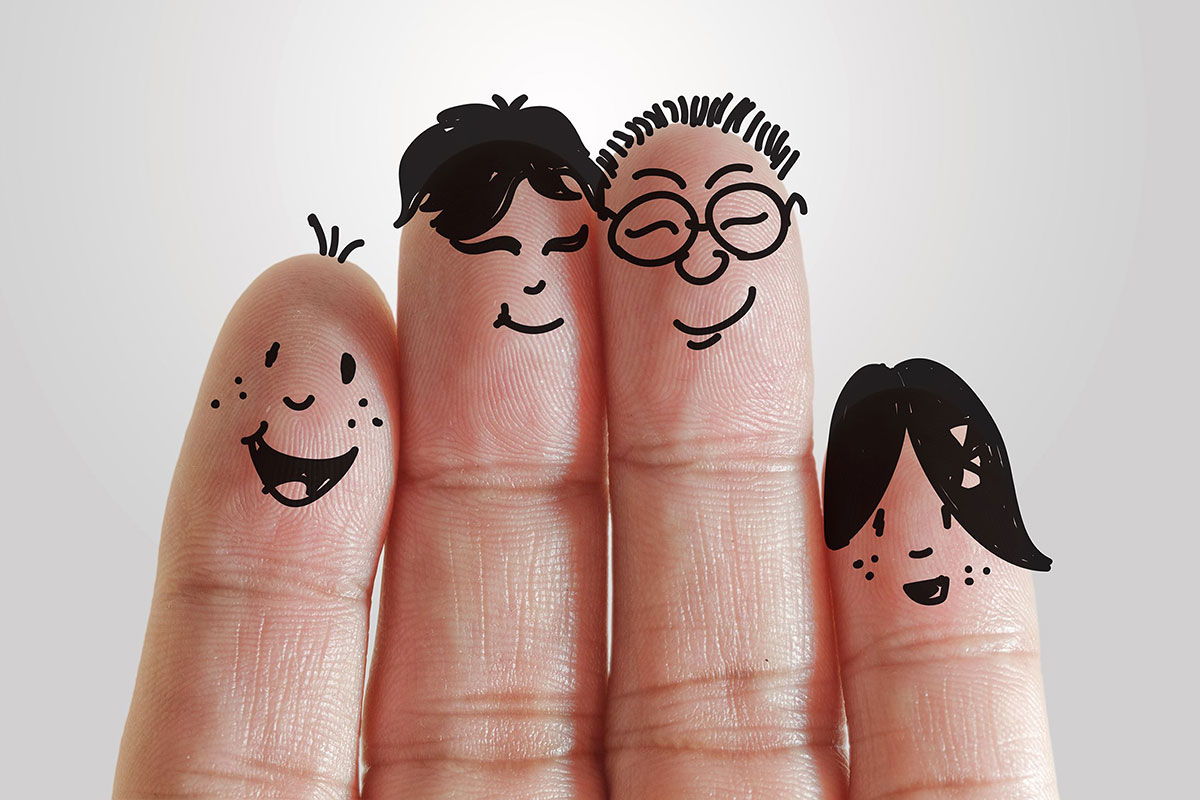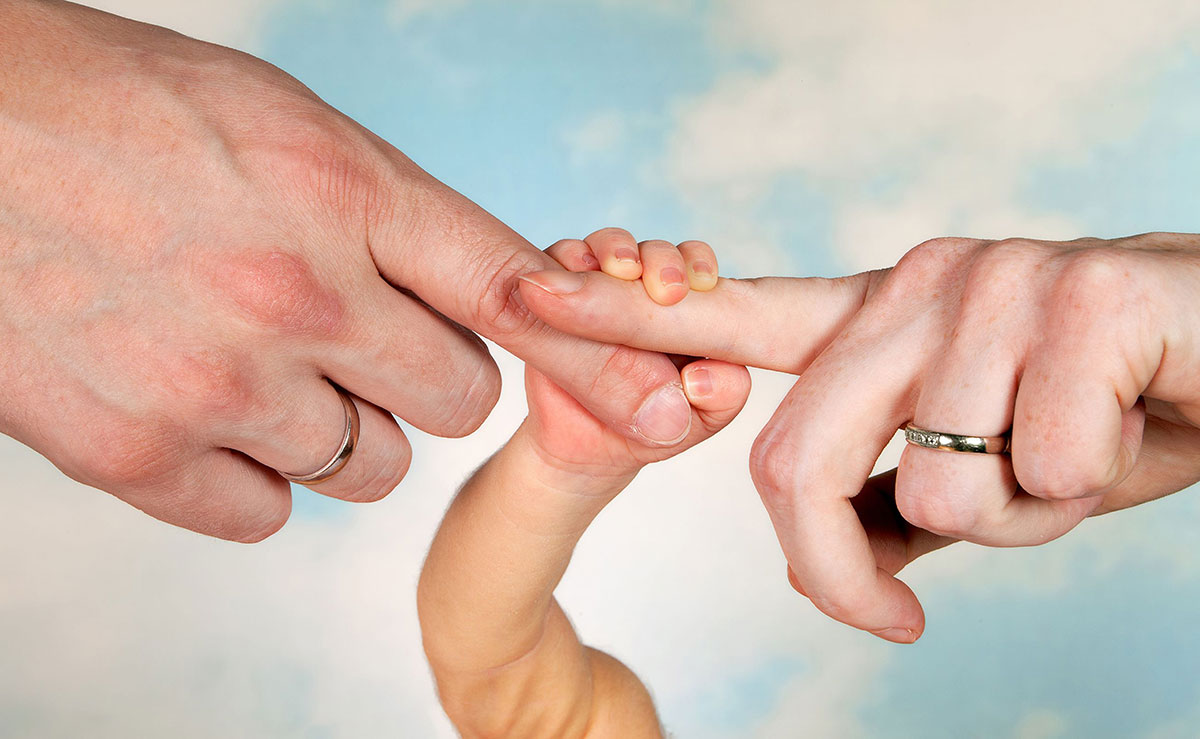 As kids, many of us vow to never do, say or act like our parents, yet despite this resolution, most of us end up mimicking behaviors, using the same words, or even physically resembling our parents. “Our temperament has a genetic link and our parents are our fundamental role models for navigating life,” says Dr. Holly Parker, a Psychology Professor at Harvard. “We see their behavior and mannerisms over and over, and between those two things it’s almost inevitable that we will pick up some of their traits.”
As kids, many of us vow to never do, say or act like our parents, yet despite this resolution, most of us end up mimicking behaviors, using the same words, or even physically resembling our parents. “Our temperament has a genetic link and our parents are our fundamental role models for navigating life,” says Dr. Holly Parker, a Psychology Professor at Harvard. “We see their behavior and mannerisms over and over, and between those two things it’s almost inevitable that we will pick up some of their traits.”
What’s more, humans are biologically programmed to mirror behavior. Studies with young infants show that babies mimic the facial expressions of their caregivers. Growing up, when we consistently see a parent scowl in traffic, complain about work or get angry over loud neighbors, we unconsciously internalize their reactions and their beliefs over a situation. Couple this with the fact that with repeated exposure, our brains create shortcuts that allow us to do things almost on autopilot. Think about driving, tying your shoe, or talking on the phone…we do them all without having to think about how to do it. Even if we don’t like the fact that Dad got angry in a traffic jam, we saw it so many times that when we find ourselves stuck in gridlock, we explode too.
 And when we do, we often get mad at ourselves. “It can feel threatening because this thing you hated in your parents you now see in yourself,” says Parker. “When you realize that, the first step is to give yourself a break and accept it. Only when you accept it can you do something about it.” And that’s just the beginning.
And when we do, we often get mad at ourselves. “It can feel threatening because this thing you hated in your parents you now see in yourself,” says Parker. “When you realize that, the first step is to give yourself a break and accept it. Only when you accept it can you do something about it.” And that’s just the beginning.
This is a perfect time for self-reflection. Ask yourself what about the situation is triggering you, and envision what you’d like your reaction to be instead. It’s not enough to simply say “I don’t want to do that like my Mom or Dad did” or “I’m going to do the exact opposite of what they did”…you have to know how you want to act. Also, try and dig deeper to figure out why it’s bothering you that you’re reacting like your parents. Is it a memory of how you felt when they got angry when you were a kid, or is it something more universal? “We like to believe the idea that we’re all individuals and have self-determination,” says Psychologist Kimber Shelton. “But if time isn’t spent building up our own identity, when faced with a dilemma we turn to what we are most familiar with, which is usually what we grew up with.”
“Growing up to be like your parents is part nature, part nurture — and, mostly, it’s something that can be tweaked with the right midnset.”
Acting like your parents can call into question whether what you believe is really what you believe, or just a learned belief passed down from your parents. When we’re upset that we’re turning into our parents, it’s often tied to the meaning we associated with the original behavior. For example, if your parents went to bed at 9 p.m. when you were a teen and you perceived that as a sign that they were old and boring, and now you’re going to bed at the same time, you may become upset because it makes you wonder if you’re old and dull.
The good news is that our perceptions are always being adjusted and refined. Something you did at 20 that reminded you of Mom and bugged you may not bother you when you’re 40. Often, when we become parents ourselves, we have a better understanding of what our parents went through and why they did and said some of the things they did. Moreover, when we lose our parents, we can also find that a trait that bothered us before now makes us happy. A woman may not have liked to hear she looked more and more like her mother everyday, but now that her mother isn’t here, she enjoys looking in the mirror and having that connection. Or a son who didn’t like his father’s corny jokes now remembers his dad fondly when he tells some of those same jokes to his kids. “My mother died young, when I was barely into my 30s, and I’ve always seen the way she lingers in my face, in my voice and in certain gestures as a comfort,” says Tucson-based Psychotherapist Kathleen McCoy.
 While it can be annoying to sometimes realize your mom’s voice just came out of your mouth, it doesn’t necessarily mean you need to change. However, if you’re repeating mom’s excessive drinking or dad’s abusive personality, immediate intervention is needed. “If someone sees that they’re mimicking a more serious issue stemming from one or both of their parents, such as addiction or being abusive, I think it’s important to get help and not go at it alone,” says Parker. “The act of getting help could mean seeking out a therapist, joining a community or support group or participating in a treatment program.” On the flip side, sometimes turning into your mom or dad is a good thing. “Maybe it’s a matter of having more patience, or finding yourself exhibiting other traits you love in your mother,” says McCoy.
While it can be annoying to sometimes realize your mom’s voice just came out of your mouth, it doesn’t necessarily mean you need to change. However, if you’re repeating mom’s excessive drinking or dad’s abusive personality, immediate intervention is needed. “If someone sees that they’re mimicking a more serious issue stemming from one or both of their parents, such as addiction or being abusive, I think it’s important to get help and not go at it alone,” says Parker. “The act of getting help could mean seeking out a therapist, joining a community or support group or participating in a treatment program.” On the flip side, sometimes turning into your mom or dad is a good thing. “Maybe it’s a matter of having more patience, or finding yourself exhibiting other traits you love in your mother,” says McCoy.
 In the end, it’s likely that we’re going to pick up both positive and negative aspects of our parents. What matters is how we integrate the good and mitigate the bad into the unique attributes that make you, well, you.
In the end, it’s likely that we’re going to pick up both positive and negative aspects of our parents. What matters is how we integrate the good and mitigate the bad into the unique attributes that make you, well, you.











